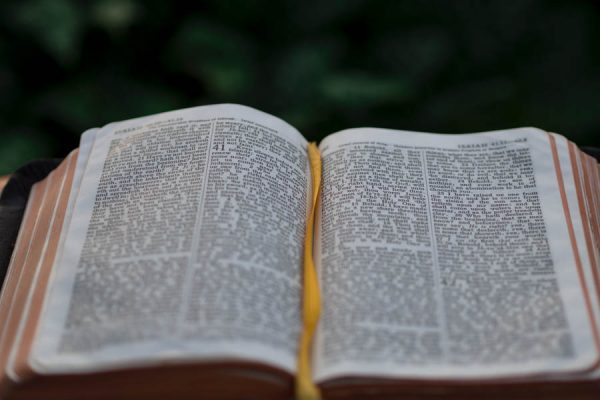On May 31 this year, America’s greatest poet, Walt Whitman, will be 198 years old. His birthday celebration will be held on Tuesday, May 23 at 5 PM at the Walt Whitman House on Mickle Street in Camden. The program usually commences in the garden behind Walt’s home where the featured speaker shares the podium with the six winners of a high school poetry contest. There will be cake, punch and maybe even a cold bottle of champagne, Walt’s favorite beverage.
I will play a part in this year’s Whitman birthday celebration because David Stedman, who served as the president of the Walt Whitman Association, asked me to be this year’s featured speaker. I’ve spent years studying Whitman as well as quoting him in my various newspaper columns and books, so naturally I find this opportunity an honor. I first visited his house on Mickle Street in the 1970s and was so fascinated by what I saw that for years afterwards I would return with friends to show them this slice of history.
The theme of this year’s celebration is “The Open Road,” a title that suggests that all of us might benefit from keeping an open mind as we live our lives.
Walt was born on May 31, 1819 in West Hills, New York and died on March 26, 1892 in the Mickle Street house. He went to a Brooklyn public school but dropped out at age 11, a common thing in those one room schoolhouse days. He didn’t write very much about his school experiences, although he did manage to write a short story “Death in the School Room (A Fact).” The story detailed the frequent use of corporal punishment by teachers in those days. You might say that public school life then was the reverse of what it is today: tyranny by students.
As a young writer, Walt liked to concentrate on themes like cruel or apathetic parents and their depressed, angst-ridden sons. One of the poet’s first jobs was in the printing office of Samuel E. Clements, a Quaker who wore an enormous broad-brimmed leghorn hat in the summer months. According to one of my favorite Whitman biographers, Jerome Loving, young Walt learned how to “parse and spell” at Clements’ composing table, the same way that Benjamin Franklin and Mark Twain learned to write.
The first newspapers in America were simple operations where the reporter was also the printer. That later changed when the printing was done separately.
Young Walt worked for a variety of printers. Later, he became a school teacher but returned to printing when he started his own newspaper, The Long Islander. The best part of having your own newspaper, Walt recalled, was delivering the papers on horseback. Walt’s earliest published poem was “Our Future Lot,” about the one common denominator that unites humankind: death. Walt also wrote essays about the evils of smoking, flogging, fashion, materialism and the stupidity of quarreling.
Loving reports that in 1840, a former student of Whitman’s recalled that “The girls did not seem to attract him …Young as I was, I was aware of that fact.” Part of the universal appeal of Leaves of Grass, the poet’s greatest work, was its bisexual view that both men and women can be equally desirable comrades in the arena of love. Walt was the seminal poet of male bonding. He also wrote: “To a Common Prostitute/ Not till the sun excludes you do I exclude you.”
Walt was too much of a poet to be a good newspaper or editorial writer. One has only to read Democratic Vistas (1871) to see how much of a rambling prose writer he could be.
Walt opposed capital punishment and for a time was an advocate of the temperance movement, writing a novel, Franklin Evans; or The Inebriate. A Tale of the Times. The book was published in 1842 as a small novel and its author listed as Walter Whitman. Sometime later Walt called the book “damned rot.” The story was a sensationalistic screed against the evils of alcohol. Walt later disavowed the temperance movement and was an immoderate drinker only for a short while. When he lived on Mickle Street, his last address, he enjoyed (very large) frosty mugs of champagne and other liquors like elderberry wine. In his bohemian years when he lived in Manhattan, he would frequent Pfaff’s cellar restaurant and saloon, a carousing, boisterous “arty” place that attracted artists of all types. Even then it is said that the poet would sit back and nurse a lager or two for the longest time while his friends drank themselves under the table.
Walt became editor of the prestigious Brooklyn Eagle from 1846 to 1848. He was a moderate on most political issues, and although he tended to approve of socialistic movements in foreign countries, he was quite the opposite when it came to his own country, although he had some pretty awful things to say about capitalism.
In 1857, the Brooklyn Daily Times described Walt as “a tall, well-built man [who] wore high boots over his pants, a jacket of heavy dark blue cloth, always left open to show a woolen undershirt, and a red handkerchief tied around his brawny neck.”
His masterpiece, Leaves of Grass, was hugely controversial during his lifetime, in some cases ending friendships and even getting him fired from his job in Washington with the Bureau of Indian Affairs. Critics either loved or hated him. To some he was the devil incarnate because he dared to call Leaves of Grass the new Bible. His book was banned in Boston, but his champions included many literary greats like Oscar Wilde, George Elliot and (to some degree) the cantankerous Ralph Waldo Emerson.
Walt gave a number of Lincoln lectures in Philadelphia and Boston after the president’s assassination. During the Civil War he worked for a number of years as a volunteer nurse in the Civil War hospitals of Washington, D.C. where he looked after dying and wounded Union and Confederate soldiers. Walt favored the Union but he would not take sides when it came to his hospital work. His most intimate male friend, Peter Doyle, for instance, was an ex-Confederate soldier who was present in Ford’s Theater when Lincoln was assassinated. Walt wrote to his mother about his visits to the hospital: “I fancy the reason I am able to do some good in the hospitals…is that I am so large and well – indeed like a great wild buffalo, with much hair—and they take to a man that has not the bleached shiny and shaved cut of the cities and the east.”
Walt abhorred slavery but he did not call himself an abolitionist. In an editorial he wrote for the Brooklyn Times in 1858, he wrote, “Who believes that the Whites and Blacks can ever amalgamate in America? Or who wishes it to happen? Nature has set and [sic] impassable seal against it.”
Before anyone rushes to judgment and calls Walt a “racist,” it is good to remember that these were the thoughts of Abraham Lincoln and everyone else of the period sans a very, very small circle of abolitionists.
Walt always believed that the nation’s capital would be moved from Washington to one of the cities of the west. “Why be content to have the Government lop-sided over on the Atlantic, far, far from itself—the trunk [west], the genuine America?” he wrote.
Before moving to Mickle Street, the poet stayed with friends at 1929 North Twenty-Second Street where in the summer he would sit with his host family on the stoop or doorstep.
Whitman’s voice, according to one friend, was “full-toned, rather high [and] baritone.” This same friend said that when Whitman read books “he would tear it to pieces—literally shed its leaves…”
One of the poet’s favorite pastimes was, as Loving states, “keeping track of his fame in the press.” How’s that for a touch of the Kardashians?
Walt was obsessed with personal cleanliness, but wherever he lived he created immense disorder with papers stacked on the floor and the curtains of his room twisted in the style of ropes to let in more sunlight.
Walt also spent a lot of time in Germantown and on the banks of the Wissahickon. He would ride the ferries on the Delaware in all kinds of weather, leaning over the boat like an old ship captain. He claimed that he once hobbled halfway across the frozen Delaware but then turned back when he sensed that the ice was getting thin. He observed, and commented on, the view of Philadelphia City Hall during its construction. He liked to hang out at the base of Market Street where he would converse with workers, roughnecks and tramps, but when evening came he would head to the opera. Before his death, he was able to purchase a wheelchair on credit from Wanamaker’s Department Store.
And who knew that Bram Stoker used Walt as his character study for Dracula?
At the time of Walt’s death in his bed on Mickle Street (an autopsy was performed on the first floor of the house where there was also a viewing), he was the most famous poet in America.
Note: This year’s birthday celebration will take place in the garden behind Walt’s house on Mickle Street. The Walt Whitman Association aims to have the state of New Jersey restore artifacts and support the construction of a Walt Whitman Visitor Center, as well as to restore the remaining row houses on Mickle Street. Contributions to the capital project may be sent to the Walt Whitman Association, 326 Mickle Blvd., Camden, NJ 08103 (thewaltwhitmanassociation.org).





